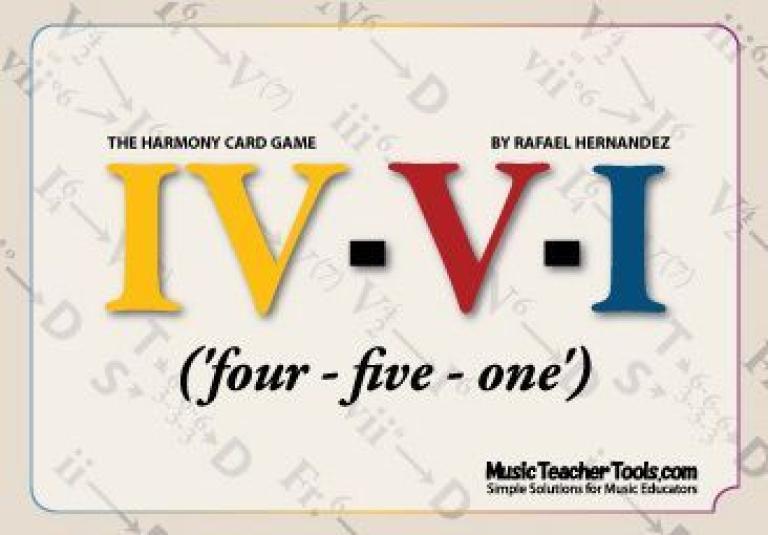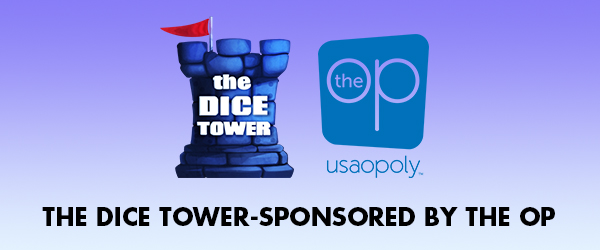IV-V-I

IV-V-I
From the box: "IV-V-I is a game where harmony and music form the backdrop for composing phrases in order to score points and win. But watch out! Twists and turns await in the form of part writing errors and styles that change the game entirely. With its unique and intuitive method of play, anyone can jump in and join the fun - regardless of musical training!"
In IV-V-I ('four-five-one') players take turns using the cards to create harmonic phrases, laying down up to three harmony cards and two voice leading cards per turn. They can also play part writing errors on their opponents to hinder their progress. Errors that are not corrected mean the relevant cards are not scored, and in some cases reduce a player's score! Composer cards allow players to break the rules to a point, but if the composer is taken out of play, what cards had been played that break the rules no longer can be counted toward a player's score. When a player is ready to score, he locks his phrase during his turn by playing a cadence card (cadences are ends of musical phrases) and scores his progression (point values are listed on each card) up to the cadence. He then clears his tableau and will start a new phrase on his next turn. When a player has finished playing cards during a turn, he will refresh his hand and game play passes to the next player. Players pre-determine a stopping point score-wise, with the first player attaining that score declared the winner.
In IV-V-I ('four-five-one') players take turns using the cards to create harmonic phrases, laying down up to three harmony cards and two voice leading cards per turn. They can also play part writing errors on their opponents to hinder their progress. Errors that are not corrected mean the relevant cards are not scored, and in some cases reduce a player's score! Composer cards allow players to break the rules to a point, but if the composer is taken out of play, what cards had been played that break the rules no longer can be counted toward a player's score. When a player is ready to score, he locks his phrase during his turn by playing a cadence card (cadences are ends of musical phrases) and scores his progression (point values are listed on each card) up to the cadence. He then clears his tableau and will start a new phrase on his next turn. When a player has finished playing cards during a turn, he will refresh his hand and game play passes to the next player. Players pre-determine a stopping point score-wise, with the first player attaining that score declared the winner.
Player Count
2
-
4
Playing Time
30
Age
12
Year Released
2008
Podcasts Featuring this Game

TDT # 158: Top 10 Party Games
In this episode, Geoff crunches some numbers, Eric and Tom talk about some recently played (or NOT played) games, and Giles goes head to head with Tom about Doom and Descent. We preview a couple of games, and take a look at an older game - Lost Cities. We discuss how much money the show makes us (hint - not much), and end the show with our top ten party games!